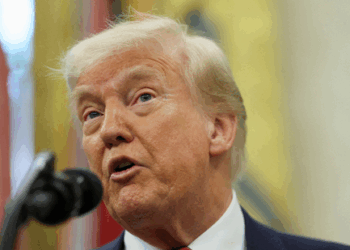North Korea has halted the operation of its 5-megawatt nuclear reactor at the Yongbyon nuclear complex, possibly to facilitate the extraction of plutonium that could be used in nuclear weapons, according to a South Korean news report on Thursday. The report cites a government source and suggests that the reactor’s operation was suspended in late September. U.S. and South Korean intelligence assessments have led officials to believe that this move might indicate reprocessing work aimed at obtaining weapons-grade plutonium.
Reprocessing spent fuel rods, which are removed from a nuclear reactor, is a necessary step in plutonium production. The Yongbyon nuclear complex is a key source of plutonium for North Korea, which has used it in the development of its nuclear weapons program. The country has also operated uranium enrichment facilities, another potential source of nuclear weapon materials.
While the exact reason for the suspension of the reactor’s operation remains uncertain, concerns have arisen that North Korea may be preparing for a nuclear test. However, details regarding the analysis leading to this assessment have not been disclosed. U.S. and South Korean intelligence agencies closely monitor developments in the region.
North Korea has previously halted and later restarted the operation of its nuclear reactor, often without public confirmation of the purpose behind such moves. The secretive nation claims to be a nuclear state but does not disclose the number of nuclear weapons in its possession. Independent estimates suggest that North Korea may have up to 70 kg of plutonium, enough for the production of 20 or more nuclear weapons.
Siegfried Hecker, a U.S. nuclear scientist, noted that despite the time North Korea has spent on its nuclear program, its capacity for producing plutonium and the actual stock of fissile material remain limited. He also expressed concerns that Russia, particularly following a summit with North Korean leader Kim Jong Un, might clandestinely supply plutonium to North Korea, potentially aiding its nuclear program.
North Korea has conducted six underground nuclear tests, and there have been ongoing concerns that it may be preparing for another test as part of efforts to develop miniaturized nuclear warheads. Recent developments, including a constitutional amendment affirming North Korea’s nuclear force policy and orders from Kim Jong Un to increase nuclear arms production, have heightened international worries about the country’s nuclear capabilities.








 India
India











